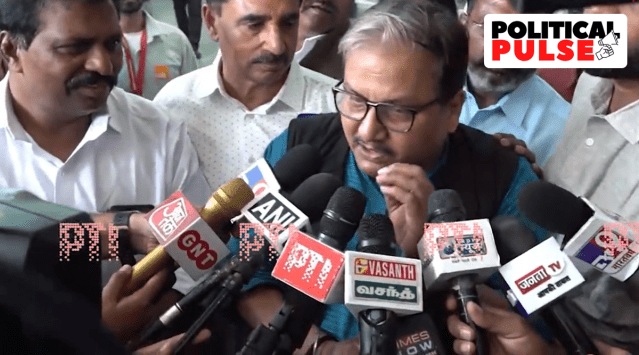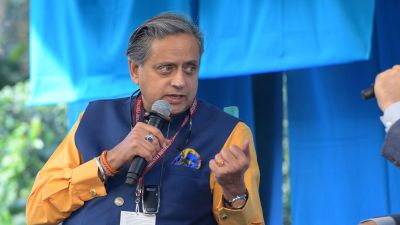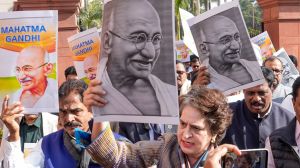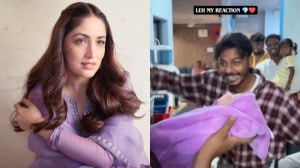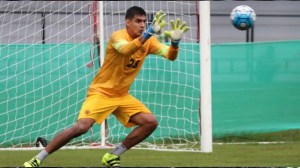Rajya Sabha MP Manoj Kumar Jha of the Rashtriya Janata Dal (RJD) was part of the Opposition delegation that visited Manipur over the weekend and submitted a memorandum to Governor Anusuiya Uikey on Sunday before returning to New Delhi. Jha, who is a professor at Delhi University, talks to The Indian Express about what he saw in the strife-torn state and how a solution to the conflict can emerge.

You were part of the 21-member Opposition delegation that went to Manipur, visiting relief camps and meeting victims. What did you see?
Jha: Frankly speaking, we knew what to expect in Manipur. We had almost all possible information available to us from different sources, but knowing it from Delhi and seeing it in the relief camps of Imphal or Churachandpur are two different things. All of us were emotionally overwhelmed by the sight of this man-made tragedy. We could see that it was an utter, shameless failure of both the state government and the Union government. Everything is disrupted. To begin with, the relationships which existed between different communities have seen a kind of rupture the likes of which we haven’t seen in years. We saw a rupture in the careers of students and their education … We saw a rupture in terms of the Internet shutdown, which adds to the rumour-mongering. The sheer sight of it, that it was happening in one part of India, to our own people, was unbearable. That it is a mirror image of what we could possibly see in the future in almost every part of the country, worried us.
You mentioned the failure of the government machinery. How was this visible?
Jha: We spoke to both communities, Kuki and Meitei. They all had huge complaints about the brazen insensitivity shown by the state government as well as the callous, insensitive approach of the Union government. I will give you one example. Apart from the delegation, I had personal meetings with some of my old students and a network of academicians. We heard stories of a Kuki family that was saved by a Meitei family and a Meitei family that was saved by a Kuki family. This is social capital. The Government should have thought of building bridges around this. Instead, they are apparently quite satisfied seeing bridges of inter-community relations getting burnt. That told us, believe me, it is not “A” community or “B” community or “C” community, everybody is unhappy. They have their reasons, but all the reasons culminate in the singular fact that the government watched while Manipur burnt.
What was a common demand across the board?
Jha: Across the board, the common demand was for the restoration of normalcy. Normalcy requires peace and peace requires justice to be perceived and delivered. People want to be rehabilitated to their original homes. They want to be resettled. Their lives are entirely disrupted. They asked, “What crimes have we committed?” We lived together for many years. If there were minor or even major irritants, the government could have addressed them. Instead, the government did virtually nothing, whether in the Valley or the Hills. If the state and Union governments had imbibed in their day-to-day administration some of the empathy, sensitivity, and wisdom the honourable Governor has for the people, Manipur would have returned to normalcy within 15-20 days.
Story continues below this ad
How was your meeting with Governor Anusuiya Uikey to whom you submitted a memorandum?
Jha: She received our memorandum. She agreed with our findings. And she believed that not only us, even an all-party delegation should organise a rally appealing for peace. What else do you expect from a Governor who was visibly disturbed? On Saturday, while we were in Churachandpur, she was before us. And we were completely in sync with each other in terms of ideas. That is why the cornerstone of our demand is justice leading to peace and harmony which is completely lost on the state and Union governments.
Given the sharp divisions and the rift between communities, how can peace be restored?
Jha: Even in this visible rupture, there are stories of people helping and saving each other. There are stories of the good old days which are not that old. We need to build on those stories rather than spreading stories of hate and violence. Once you build on those stories with a sensitive approach, it is still possible for us to help people come out of this trauma, rebuild their lives, and rebuild important bridges between communities.
Story continues below this ad
The Opposition raised political demands such as sacking CM N Biren Singh. Practically, what can the Central government do now and what should it do? A no-confidence motion is set to come up for discussion in the Lok Sabha. What does the Opposition expect the Central government to do?
Jha: First thing, the government should acknowledge that there is a problem. The problem with the Union government is that it has failed to acknowledge this. The proof of that is the Prime Minister choosing to remain silent, conspicuously silent. And that is very very loud, not just in Delhi but in the Hills as well as the Valley in Manipur. Once you acknowledge that, you make sure that you intervene with a collective approach. There are no Opposition and Treasury Benches here. When it is a question of ethnic harmony and ethnic relationships, we should thrash out those boundaries and go beyond them. The Prime Minister should trust the Opposition in Delhi as well as in Manipur and build a concerted approach. He should acknowledge and do some work. The present CM is perceived as part of the problem. So, he cannot be part of the solution.

